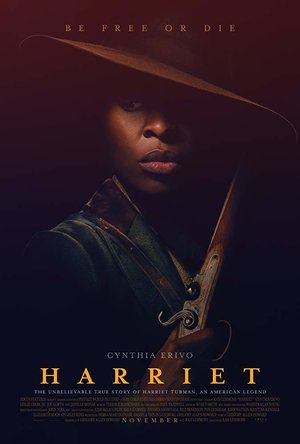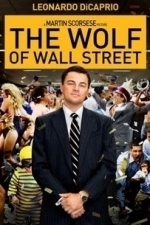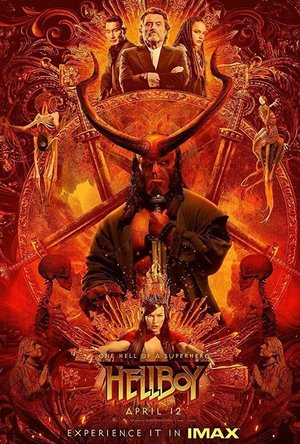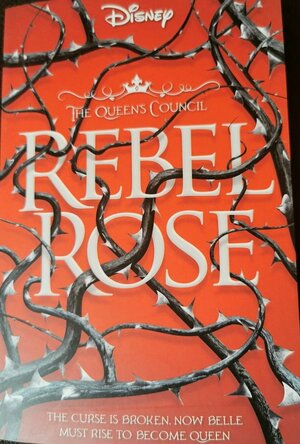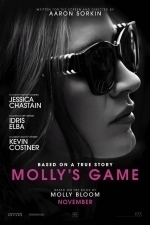Search
Gareth von Kallenbach (980 KP) rated The 15:17 To Paris (2018) in Movies
Jul 8, 2019
Based on book, The 15:17 to Paris: The True Story of a Terrorist, a Train, and Three American Soldiers by Jeffrey E. Stern, Spencer Stone, Anthony Sadler and Alek Skarlatos, the film, The 15:17 to Paris tells the story of three America friends who stop a terrorist attempt on a train to Paris.
The men are heroes and it is inspiring to see how ordinary people can step up and put their lives at risk to save lives.
As such, this film would have been better told as a short documentary. Mostly because I found myself wondering what these men were thinking in those moments. How were they feeling when they saw people running and heard a gunshot. What made them take action? Was there doubt? And how did their friendship/bond contribute to being able to support each other in that moment and after?
Unfortunately, we do not get the answers to these questions. Instead Director Clint Eastwood decided to make a film that was trying to imitate real life as much as possible. So much so, the three actual heroes Stone, Sadler and Skarlatos play themselves. If Eastwood’s goal was to show how mundane life is in every day moments and a terrorist attack can happen at any moment in any mundane situation and end just as quickly, he succeeded. These three friends have cringe worthy dialogue that goes nowhere throughout the story. It makes these real life friends feel like they do not have any chemistry as it is clear they all feel out of their element in front of the camera. Not exactly the level of amateurism you would expect from a full feature film.
The semi bright spot is when we are shown how these three men became friends as boys and how they grew up. We get an understanding of how they like to play “war” in their back yard and how they would get in trouble but still have each other’s back when it counted. However, like the rest of this film, I wish this was told as a documentary or dramatic documentary. I wanted to hear from them firsthand what they thought about their friendship and how it evolved.
Stone, Sadler and Skarlatos are Heroes. They deserve better than this film. These three men deserve an opportunity to have their story told so people everywhere can care and understand. One of them had a call to duty because of his grandfather who served in WWII. What did that truly mean to him? We don’t know. One felt like he was being pushed to greatness by the universe. What did that mean to him now that it’s happened? We don’t know because we don’t hear from him first hand. The other was always just looking to have a good time. How does he feel about what happened and his friends? We don’t know. Because we are never given anything buy hollow dialogue, some loose information to surmise these things and bad screen chemistry from three real life friends.
I left the movie in awe of what the trio did in a moment where most people would run or think only of themselves. But I cannot in good faith recommend anyone spend money at a theater for a film that feels like it was produced by an amateur and should have been premiered on YouTube.
The men are heroes and it is inspiring to see how ordinary people can step up and put their lives at risk to save lives.
As such, this film would have been better told as a short documentary. Mostly because I found myself wondering what these men were thinking in those moments. How were they feeling when they saw people running and heard a gunshot. What made them take action? Was there doubt? And how did their friendship/bond contribute to being able to support each other in that moment and after?
Unfortunately, we do not get the answers to these questions. Instead Director Clint Eastwood decided to make a film that was trying to imitate real life as much as possible. So much so, the three actual heroes Stone, Sadler and Skarlatos play themselves. If Eastwood’s goal was to show how mundane life is in every day moments and a terrorist attack can happen at any moment in any mundane situation and end just as quickly, he succeeded. These three friends have cringe worthy dialogue that goes nowhere throughout the story. It makes these real life friends feel like they do not have any chemistry as it is clear they all feel out of their element in front of the camera. Not exactly the level of amateurism you would expect from a full feature film.
The semi bright spot is when we are shown how these three men became friends as boys and how they grew up. We get an understanding of how they like to play “war” in their back yard and how they would get in trouble but still have each other’s back when it counted. However, like the rest of this film, I wish this was told as a documentary or dramatic documentary. I wanted to hear from them firsthand what they thought about their friendship and how it evolved.
Stone, Sadler and Skarlatos are Heroes. They deserve better than this film. These three men deserve an opportunity to have their story told so people everywhere can care and understand. One of them had a call to duty because of his grandfather who served in WWII. What did that truly mean to him? We don’t know. One felt like he was being pushed to greatness by the universe. What did that mean to him now that it’s happened? We don’t know because we don’t hear from him first hand. The other was always just looking to have a good time. How does he feel about what happened and his friends? We don’t know. Because we are never given anything buy hollow dialogue, some loose information to surmise these things and bad screen chemistry from three real life friends.
I left the movie in awe of what the trio did in a moment where most people would run or think only of themselves. But I cannot in good faith recommend anyone spend money at a theater for a film that feels like it was produced by an amateur and should have been premiered on YouTube.
BankofMarquis (1832 KP) rated Harriet (2019) in Movies
Nov 4, 2019
Collapses under the weight of it's own earnestness
The filmmakers behind the true story of HARRIET, the film based on the remarkable actions of Harriet Tubman (the former slave who helped free others slaves via the Underground Railroad) were surprised to find that there had been no accurate film portrayal of this remarkable woman, so they set out to make one.
And the result, was a film that is very deep in accuracy and very slight everywhere else.
Starring Cynthia Erivo (WIDOWS), HARRIET tells the tale of Harriet Tubman from her time as a slave, through her escape to freedom and her return (many, many times) via the "Underground Railroad" to free many other slaves. Her story is astonishing, filled with heroes, villains, visions, successes and failures and should have lent itself to a film befitting of the great heights this woman achieved.
Unfortunately, Writer Director Kasi Lemmons (EVE'S BAYOU) spends a great deal of the film showing the actual, accurate events of Tubman's tale, so much so that it suffers one of the most deadly of sins in filmdom - it drags into boredom under the weight of it's own earnestness. Lemmons, obviously, has great respect for Tubman and shows her in a reverential light throughout this film, showing few (if any) warts and giving us a one-note character that is laser-focused on her purpose, and not much else. While this might have been true-to-life, it does not lend itself to an interesting film.
The same goes for the lead performance from Erivo. I have liked her previous work in films like WIDOWS and BAD TIMES AT THE EL ROYALE, so was excited to see her take the lead in an important film like this. But...her portrayal is one-note and slight and does not plumb the depths of a character that I am sure has many, many more layers than is portrayed on this screen.
The supporting cast (including Leslie Odom, Jr, Vondie Curtis-Hall and Clarke Peters) are also earnest and slight and don't really add anything to the proceedings. Only Janelle Monae, as a fictional free black woman who becomes a mentor of sorts to Tubman, seems to rise above this weak script.
Usually, in films about slavery, the evil (or conflicted) slave owners have a tendency to shine out because of their wickedness (or their confliction) - but in this film, and with this script, Joe Alwyn as Gideon Brodess (the fictional owner of Tubman who is obsessed with bringing her back to slavery) and Jennifer Nettles (as his mother) are...you guessed it...slight and underwritten and don't really bring anything to the proceedings.
What this film did do - and did do well - was make me want to find out more about this hero...and that is a good thing. So, if that is all this film does, then I applaud the attempt, I just wished it would have landed as a film in a much stronger way.
Letter Grade B-
6 stars (out of 10) and you can take that to the Bank(ofMarquis)
And the result, was a film that is very deep in accuracy and very slight everywhere else.
Starring Cynthia Erivo (WIDOWS), HARRIET tells the tale of Harriet Tubman from her time as a slave, through her escape to freedom and her return (many, many times) via the "Underground Railroad" to free many other slaves. Her story is astonishing, filled with heroes, villains, visions, successes and failures and should have lent itself to a film befitting of the great heights this woman achieved.
Unfortunately, Writer Director Kasi Lemmons (EVE'S BAYOU) spends a great deal of the film showing the actual, accurate events of Tubman's tale, so much so that it suffers one of the most deadly of sins in filmdom - it drags into boredom under the weight of it's own earnestness. Lemmons, obviously, has great respect for Tubman and shows her in a reverential light throughout this film, showing few (if any) warts and giving us a one-note character that is laser-focused on her purpose, and not much else. While this might have been true-to-life, it does not lend itself to an interesting film.
The same goes for the lead performance from Erivo. I have liked her previous work in films like WIDOWS and BAD TIMES AT THE EL ROYALE, so was excited to see her take the lead in an important film like this. But...her portrayal is one-note and slight and does not plumb the depths of a character that I am sure has many, many more layers than is portrayed on this screen.
The supporting cast (including Leslie Odom, Jr, Vondie Curtis-Hall and Clarke Peters) are also earnest and slight and don't really add anything to the proceedings. Only Janelle Monae, as a fictional free black woman who becomes a mentor of sorts to Tubman, seems to rise above this weak script.
Usually, in films about slavery, the evil (or conflicted) slave owners have a tendency to shine out because of their wickedness (or their confliction) - but in this film, and with this script, Joe Alwyn as Gideon Brodess (the fictional owner of Tubman who is obsessed with bringing her back to slavery) and Jennifer Nettles (as his mother) are...you guessed it...slight and underwritten and don't really bring anything to the proceedings.
What this film did do - and did do well - was make me want to find out more about this hero...and that is a good thing. So, if that is all this film does, then I applaud the attempt, I just wished it would have landed as a film in a much stronger way.
Letter Grade B-
6 stars (out of 10) and you can take that to the Bank(ofMarquis)
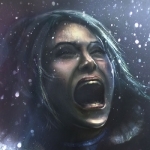
Forgotten Memories: Alternate Realities
Games and Entertainment
App
Finalist in the CVA videogames awards 2015. Nominations: Best Audio, Best Original Music, Best Indie...
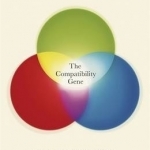
The Compatibility Gene
Book
Short-listed for the Society of Biology Book Award 2014 Long-listed for the Royal Society Winton...
Elli H Burton (1288 KP) rated The Wolf of Wall Street (2013) in Movies
Jun 17, 2019
Surprisingly Fantastic
Honestly couldn't believe I enjoyed this film. I hate drug use and for a film that has so much of it I still don't understand why I like it.
The direction is superb, the sequence of how he went from the start to the big office is awesome. The narration is awesome too, sometimes it can be like YEAH I GET IT but i felt it was appropriate.
The acting is probably one of the best I've ever seen, how leo didn't get his oscar from this I don't know. Just the scene at the hotel payphone is (despite my pure hatred for drugs) just phenomenal. Also Jonah Hill, he really became the character. He is so underrated it's ridiculous, he's usually typecast to the chubby geeky guy but in this he's a sleezy, philandering a**hole and he plays it to perfection, the way he commits is something people aspiring to become actors should watch and take notes. Margot Robbie, for her first major role in film DAMN. I'm a straight woman but she just oozes sexy. Her accent is spot on, especially when you know she's actually Australian. She got the part and she made it hers, no one else could have played Jordan's wife but her.
The Matthew McConaughey scene is something that will go down in movie history for one of the best (and slightly odd) improvisation moments.
Jordan's character progression is timed perfectly, it's gradual enough to be subtle, but not so slow it's boring
I didn't like the whole shaven head thing, found that a bit omg, as with the prostitutes was too much but the pros of this film outway all that.
I found it to be gritty, sexy, funny, disturbing and a fantastic movie. Definitely should watch it, though maybe not for a family film night!
The direction is superb, the sequence of how he went from the start to the big office is awesome. The narration is awesome too, sometimes it can be like YEAH I GET IT but i felt it was appropriate.
The acting is probably one of the best I've ever seen, how leo didn't get his oscar from this I don't know. Just the scene at the hotel payphone is (despite my pure hatred for drugs) just phenomenal. Also Jonah Hill, he really became the character. He is so underrated it's ridiculous, he's usually typecast to the chubby geeky guy but in this he's a sleezy, philandering a**hole and he plays it to perfection, the way he commits is something people aspiring to become actors should watch and take notes. Margot Robbie, for her first major role in film DAMN. I'm a straight woman but she just oozes sexy. Her accent is spot on, especially when you know she's actually Australian. She got the part and she made it hers, no one else could have played Jordan's wife but her.
The Matthew McConaughey scene is something that will go down in movie history for one of the best (and slightly odd) improvisation moments.
Jordan's character progression is timed perfectly, it's gradual enough to be subtle, but not so slow it's boring
I didn't like the whole shaven head thing, found that a bit omg, as with the prostitutes was too much but the pros of this film outway all that.
I found it to be gritty, sexy, funny, disturbing and a fantastic movie. Definitely should watch it, though maybe not for a family film night!
Logan Eccles (135 KP) rated Hellboy (2019) in Movies
Oct 1, 2020 (Updated Oct 2, 2020)
For TRUE Hellboy fans
Ok, I know I didn't give this a super high rating but I did rate it higher than IMDBs' 5.2. Now being a fan of "Stranger Things" I was super excited when David Harbour(Hopper) was cast as Hellboy. And boy did he nail it! All the cast and crew nailed it. You could tell what they were going for as soon as the movie started.
Before I go on with my Review fans of the Ron Pearlman Hellboy who are expecting this one to be the same especially after the first official trailer came out and it did just look like the same movie. It is not. I repeat IT IS NOT. Director Neil Marshall and screenplay writer Andrew Cosby made a movie more based on Mike Mignolas' comic. I know, I know, some of you are reading this going "so did Guillermo idiot!" And yes you are right but this film is Centered around the work from start to finish. I felt like I was watching a comic. As soon as it starts black and Wight with only red popping out it gives that Hellboy comic tone. Even the makeup and structure of Hellboy in this film look more like the comic.
Though the story is somewhat similar to the original movie it is just enough different to set it apart. The ensemble of characters does a good job of that. The set up of the new characters is great and they feel like they belong as opposed to just being replacements like I thought theywould be. Sasha Lanes' Alice and Daniel Dae Kims' Major Ben Daimio are great and different. When they finally come together as a full-fledged team, in the end, I was ready for more. As unlikely as that is I hope they do get a sequel because it showed potential for one and it was really fun. However, I am sorta glad I didn't see it in theaters I feel like its a better-enjoyed movie for home.
Before I go on with my Review fans of the Ron Pearlman Hellboy who are expecting this one to be the same especially after the first official trailer came out and it did just look like the same movie. It is not. I repeat IT IS NOT. Director Neil Marshall and screenplay writer Andrew Cosby made a movie more based on Mike Mignolas' comic. I know, I know, some of you are reading this going "so did Guillermo idiot!" And yes you are right but this film is Centered around the work from start to finish. I felt like I was watching a comic. As soon as it starts black and Wight with only red popping out it gives that Hellboy comic tone. Even the makeup and structure of Hellboy in this film look more like the comic.
Though the story is somewhat similar to the original movie it is just enough different to set it apart. The ensemble of characters does a good job of that. The set up of the new characters is great and they feel like they belong as opposed to just being replacements like I thought theywould be. Sasha Lanes' Alice and Daniel Dae Kims' Major Ben Daimio are great and different. When they finally come together as a full-fledged team, in the end, I was ready for more. As unlikely as that is I hope they do get a sequel because it showed potential for one and it was really fun. However, I am sorta glad I didn't see it in theaters I feel like its a better-enjoyed movie for home.
Emma @ The Movies (1786 KP) rated Instant Family (2019) in Movies
Jun 22, 2019 (Updated Sep 25, 2019)
Going in to Instant Family I had some reservations. I'm a big fan of Rose Byrne, her performance in last year's Juliet, Naked was a delight to watch, but on the flipside Mark Wahlberg and comedy don't come high on my must see list. Thankfully those thoughts were quickly dismissed as the times I laughed out loud soared into the double digits.
This is a genuinely good film with just a couple of things that made me pause a little, I'll mention those later. The moments where I laughed it was out loud, like almost everyone else at the screening, and when I wasn't laughing I was probably crying, sometimes ugly crying.
Byrne and Wahlberg worked so well together and with Isabela Moner in the mix too we were treated to some great on screen chemistry. I'm hoping we'll see a lot more of Moner on our screens as she was able to pull her weight really well with all the fantastic actors in this.
A lot is obviously focused around Ellie, Pete and the kids, but outside of that dynamic I've got to give some love to Karen and Sharon. Octavia Spencer and Tig Notaro are such a fun double act, although for me Spencer will always steal the show. Their dynamic running the fostering program brought a smile to my face and while the reactionary humour may be predictable it lands so well that I couldn't care less that I knew it was coming.
My negatives about the films are so minute that they hardly seem worth mentioning. Pete (Wahlberg) has a tendency to be blunt and externalise what most of us would keep as inner dialogue. His script gives you those moments where you take a sharp breath and say "you shouldn't say that!" Ellie counteracts this by being the slight voice of reason so while you're taken aback by Pete's honesty you quickly come back to the normal flow of the film.
Out of my two quibbles this one caused me the most issues. Joan Cusack. She's great, I enjoy her work, but I really don't understand her inclusion in this. She pops up as a sort of cameo role near the end and it feels a little invasive on the dramatic moment we're witnessing, it just seems awkward and forced. It does at least lead to an amusing moment for Spencer so I think that probably gets it the pass.
Instant Family is definitely chock full of laughs and feels, despite my grumbles I still feel it deserves these five stars.
What you should do
It's a very entertaining film and perhaps surprisingly based on a true story, it's well worth a watch. I really think that everyone will get some entertainment out of this.
Movie thing you wish you could take home
If you could send Pete and Ellie round with their renovation skills it would be much appreciated.
This is a genuinely good film with just a couple of things that made me pause a little, I'll mention those later. The moments where I laughed it was out loud, like almost everyone else at the screening, and when I wasn't laughing I was probably crying, sometimes ugly crying.
Byrne and Wahlberg worked so well together and with Isabela Moner in the mix too we were treated to some great on screen chemistry. I'm hoping we'll see a lot more of Moner on our screens as she was able to pull her weight really well with all the fantastic actors in this.
A lot is obviously focused around Ellie, Pete and the kids, but outside of that dynamic I've got to give some love to Karen and Sharon. Octavia Spencer and Tig Notaro are such a fun double act, although for me Spencer will always steal the show. Their dynamic running the fostering program brought a smile to my face and while the reactionary humour may be predictable it lands so well that I couldn't care less that I knew it was coming.
My negatives about the films are so minute that they hardly seem worth mentioning. Pete (Wahlberg) has a tendency to be blunt and externalise what most of us would keep as inner dialogue. His script gives you those moments where you take a sharp breath and say "you shouldn't say that!" Ellie counteracts this by being the slight voice of reason so while you're taken aback by Pete's honesty you quickly come back to the normal flow of the film.
Out of my two quibbles this one caused me the most issues. Joan Cusack. She's great, I enjoy her work, but I really don't understand her inclusion in this. She pops up as a sort of cameo role near the end and it feels a little invasive on the dramatic moment we're witnessing, it just seems awkward and forced. It does at least lead to an amusing moment for Spencer so I think that probably gets it the pass.
Instant Family is definitely chock full of laughs and feels, despite my grumbles I still feel it deserves these five stars.
What you should do
It's a very entertaining film and perhaps surprisingly based on a true story, it's well worth a watch. I really think that everyone will get some entertainment out of this.
Movie thing you wish you could take home
If you could send Pete and Ellie round with their renovation skills it would be much appreciated.
Lottie disney bookworm (1056 KP) rated Rebel Rose (The Queen's Council #1) in Books
Dec 29, 2020
Contains spoilers, click to show
Set against the backdrop of revolutionary France, ‘Rebel Rose’ continues the story of Beauty and the Beast after the curse is broken. Belle and her Prince now have to find a way to navigate married life, rank, politics and explain a 10-year absence from the French Court of Versailles.
Controversially, Emma Theriault baits the hardcore Disney fans straight out of the gates by naming her Prince Lio (Lio, Lion, beast, gettit?) rather than Adam. In the grand scheme of things this can easily be forgiven but it still seems a strange choice. Maybe Adam was too English for a French Prince?
However, the use of first person perspective ensures that our protagonist remains firmly in Belle. Belle has refused the title of Princess upon marriage in order to stay true to her roots but is constantly hiding her true self: even referring to a trip around Europe as “one last adventure before the walls of the castle close around her”. When Belle witnesses the revolutionary sparks within the city this divides her further: how can she be part of the nobility these people rally against and an avid “commoner” at the same time?
In truth, Belle as a character divided me as well. Belle has always been my favourite Disney Princess (possibly to do with that massive library) and, in the most part, I feel Theriault wrote her well and stayed true to the character. However, in the early pages Belle felt very spoilt and selfish to me: preferring to disguise herself and explore Paris rather than support Lio in explaining his decade-long disappearing act to King Louis.
I was intrigued to know what my fellow reviewers thought and was unsurprised to see a LOT of criticism of our heroine, her shunning of the title of Princess and her lack of enthusiasm to be a leader. However, I almost felt that this made the story more realistic. Just because she broke a curse and married a Prince doesn’t mean she can automatically feel ready and comfortable leading a kingdom! Maybe she just has a fondness for hairy men?
Belle’s reluctance and tentativeness to lead also fed very nicely into her passion to improve the lives of the residents of the kingdom of Aveyon. This is common sense to her and therefore doesn’t feel like ruling. Indeed, it is not seen by any of the main characters as ruling but in the end it saves them all from a revolution of their own.
I would have liked Lio to be a little bit more developed than he was. The fact that he harboured an element of PTSD from the curse was really interesting but not explored any further than his nightmares and aversion towards roses. There was undoubtedly chemistry between him and Belle but it was just a bit lacklustre in my opinion. This may be due to his absence for a lot of the book but I felt the reader could have loved him a lot more than we did.
Lio’s cousin Bastien is the slimy villain of the tale and I would have liked a bit more mystery and suspense within his character. I appreciated that Belle didn’t like him initially as he was a powdered, wig wearing noble who was close to King Louis, basically as far away from Belle as possible. Bastien is also quite snobby towards Belle in his earliest chapters so you can’t blame her for disliking him.
However, by using language to plainly show that Belle distrusts her husband’s cousin, Theriault instantly creates a flashing neon “villain” sign above his head. This would have been fine in a middle-grade book but within YA I think the reader could have been afforded to be misled a couple of times before uncovering Bastien’s real intentions.
**This section contains spoilers**
I also believe that Bastien’s eventual story arc was a tad unbelievable. At first I thought his revolutionary sympathies and further plots with various goons was a ruse in order to gain the throne for himself, particularly once he had established himself firmly with the advisory. Emma Theriault’s decision to keep Bastien true to the revolution seemed rushed, and a bit odd to be honest. This is a noble who lives in the lap of luxury and attends to King Louis himself but who then turns on his own kind after basically forcing the kingdom of Aveyon to break away from France? It didn’t seem plausible to me.
Rebel Rose is an easy to read continuation of one of our favourite Disney tales. It reintroduces us to old favourites such as Mrs Potts and Lumiere as well as introducing new characters such as Marguerite and Bastien. Belle’s journey to staying true to herself and following her gut is one anyone can empathise with and her discovery that she does not have to appease to outsider’s expectations will never cease to be important.
The magic contained within this novel is a perfect springboard for the rest of the novels within the Queen’s Council series: the next one is based on Mulan and will be written by Livia Blackburne before Jasmine’s story by Alexandra Monir follows in 2022. The majority of the action within this novel does take place towards the end so it can be a little slow paced and politics focused but I enjoyed seeing Belle and Lio break free of their fairytale life and become a little more real.
Although this isn’t my favourite Disney novel, I do appreciate the break away from the retelling genre and the move towards bringing these well-known characters into the real world. For a debut novel I think Emma Theriault should be immensely proud: the research for the historical context alone must have been a mission!
Controversially, Emma Theriault baits the hardcore Disney fans straight out of the gates by naming her Prince Lio (Lio, Lion, beast, gettit?) rather than Adam. In the grand scheme of things this can easily be forgiven but it still seems a strange choice. Maybe Adam was too English for a French Prince?
However, the use of first person perspective ensures that our protagonist remains firmly in Belle. Belle has refused the title of Princess upon marriage in order to stay true to her roots but is constantly hiding her true self: even referring to a trip around Europe as “one last adventure before the walls of the castle close around her”. When Belle witnesses the revolutionary sparks within the city this divides her further: how can she be part of the nobility these people rally against and an avid “commoner” at the same time?
In truth, Belle as a character divided me as well. Belle has always been my favourite Disney Princess (possibly to do with that massive library) and, in the most part, I feel Theriault wrote her well and stayed true to the character. However, in the early pages Belle felt very spoilt and selfish to me: preferring to disguise herself and explore Paris rather than support Lio in explaining his decade-long disappearing act to King Louis.
I was intrigued to know what my fellow reviewers thought and was unsurprised to see a LOT of criticism of our heroine, her shunning of the title of Princess and her lack of enthusiasm to be a leader. However, I almost felt that this made the story more realistic. Just because she broke a curse and married a Prince doesn’t mean she can automatically feel ready and comfortable leading a kingdom! Maybe she just has a fondness for hairy men?
Belle’s reluctance and tentativeness to lead also fed very nicely into her passion to improve the lives of the residents of the kingdom of Aveyon. This is common sense to her and therefore doesn’t feel like ruling. Indeed, it is not seen by any of the main characters as ruling but in the end it saves them all from a revolution of their own.
I would have liked Lio to be a little bit more developed than he was. The fact that he harboured an element of PTSD from the curse was really interesting but not explored any further than his nightmares and aversion towards roses. There was undoubtedly chemistry between him and Belle but it was just a bit lacklustre in my opinion. This may be due to his absence for a lot of the book but I felt the reader could have loved him a lot more than we did.
Lio’s cousin Bastien is the slimy villain of the tale and I would have liked a bit more mystery and suspense within his character. I appreciated that Belle didn’t like him initially as he was a powdered, wig wearing noble who was close to King Louis, basically as far away from Belle as possible. Bastien is also quite snobby towards Belle in his earliest chapters so you can’t blame her for disliking him.
However, by using language to plainly show that Belle distrusts her husband’s cousin, Theriault instantly creates a flashing neon “villain” sign above his head. This would have been fine in a middle-grade book but within YA I think the reader could have been afforded to be misled a couple of times before uncovering Bastien’s real intentions.
**This section contains spoilers**
I also believe that Bastien’s eventual story arc was a tad unbelievable. At first I thought his revolutionary sympathies and further plots with various goons was a ruse in order to gain the throne for himself, particularly once he had established himself firmly with the advisory. Emma Theriault’s decision to keep Bastien true to the revolution seemed rushed, and a bit odd to be honest. This is a noble who lives in the lap of luxury and attends to King Louis himself but who then turns on his own kind after basically forcing the kingdom of Aveyon to break away from France? It didn’t seem plausible to me.
Rebel Rose is an easy to read continuation of one of our favourite Disney tales. It reintroduces us to old favourites such as Mrs Potts and Lumiere as well as introducing new characters such as Marguerite and Bastien. Belle’s journey to staying true to herself and following her gut is one anyone can empathise with and her discovery that she does not have to appease to outsider’s expectations will never cease to be important.
The magic contained within this novel is a perfect springboard for the rest of the novels within the Queen’s Council series: the next one is based on Mulan and will be written by Livia Blackburne before Jasmine’s story by Alexandra Monir follows in 2022. The majority of the action within this novel does take place towards the end so it can be a little slow paced and politics focused but I enjoyed seeing Belle and Lio break free of their fairytale life and become a little more real.
Although this isn’t my favourite Disney novel, I do appreciate the break away from the retelling genre and the move towards bringing these well-known characters into the real world. For a debut novel I think Emma Theriault should be immensely proud: the research for the historical context alone must have been a mission!
Lee (2222 KP) rated Molly's Game (2017) in Movies
Nov 30, 2017
My local cinema held a secret screening last night, and Molly's Game was the surprise movie they showed. Beforehand, I'd probably only seen the name of the movie along with the accompanying poster and I had literally no idea what it was about. If I'd seen the trailer, and knew a bit more about the plot movie, I don't think I'd have gone to watch it, but it actually turned out to be a pretty enjoyable movie. Despite the fact that there were about 10 other movies I was secretly hoping they'd screen instead, I wasn't disappointed by this. That's the gamble you take with a secret screening I guess.
Molly's Game is based on a true story, and the accompanying book written by Molly Bloom. It's written and directed by Aaron Sorkin, writer of, among other things, The West Wing and The Newsroom, so you get a pretty good idea of the quick-witted snappy dialogue that you're in for. Jessica Chastain plays Molly, and she is just absolutely incredible in this movie. Not knowing the basic story it was based on, the opening scenes changed direction so many times that I was left wondering what the movie was actually going to be about and which direction it was headed. Narrated by Molly, we're initially introduced to her life as an Olympic class skier. She describes her younger life training with her stern father (Kevin Costner), the spinal surgery which put her out of action for a while, her fight back to the top and the tragic accident which then put her out of action once more. Then we jump forward 12 years, where Molly is suddenly woken one morning by a phone call. It's the FBI, and they want her to come out of her room within the next few minutes or they're going to break down the door. When she does come out, she is cuffed and arrested for running high-stakes poker games. We then see her in the office of Charlie Jaffey (Idris Elba), a top (and expensive) lawyer who Molly would like to represent her. The remainder of the movie then switches between Molly narrating and filling us in on the events of the last decade or so leading up to now, and Molly and Charlie as they bicker and work together in piecing together her defence.
The first half of the movie is enjoyable as we follow Molly, working her way up from bored secretary to running hugely expensive poker games for the rich, famous and weird in Los Angeles and then New York. As mentioned earlier, Jessica Chastain is simply amazing, given a superb performance as we follow Molly from troubled child to shrewd, intelligent business woman and 'poker princess'. At the height of her game she was legally raking in thousands of dollars each night, and even getting on the wrong side of the Russian mob. However, after a while it all starts to drag a little and I feel the movie could have benefited from a much tighter run time (it's 160 minutes long). Things pick up again towards the end though, and Costner and Elba get their chance to shine. Well worth watching.
Molly's Game is based on a true story, and the accompanying book written by Molly Bloom. It's written and directed by Aaron Sorkin, writer of, among other things, The West Wing and The Newsroom, so you get a pretty good idea of the quick-witted snappy dialogue that you're in for. Jessica Chastain plays Molly, and she is just absolutely incredible in this movie. Not knowing the basic story it was based on, the opening scenes changed direction so many times that I was left wondering what the movie was actually going to be about and which direction it was headed. Narrated by Molly, we're initially introduced to her life as an Olympic class skier. She describes her younger life training with her stern father (Kevin Costner), the spinal surgery which put her out of action for a while, her fight back to the top and the tragic accident which then put her out of action once more. Then we jump forward 12 years, where Molly is suddenly woken one morning by a phone call. It's the FBI, and they want her to come out of her room within the next few minutes or they're going to break down the door. When she does come out, she is cuffed and arrested for running high-stakes poker games. We then see her in the office of Charlie Jaffey (Idris Elba), a top (and expensive) lawyer who Molly would like to represent her. The remainder of the movie then switches between Molly narrating and filling us in on the events of the last decade or so leading up to now, and Molly and Charlie as they bicker and work together in piecing together her defence.
The first half of the movie is enjoyable as we follow Molly, working her way up from bored secretary to running hugely expensive poker games for the rich, famous and weird in Los Angeles and then New York. As mentioned earlier, Jessica Chastain is simply amazing, given a superb performance as we follow Molly from troubled child to shrewd, intelligent business woman and 'poker princess'. At the height of her game she was legally raking in thousands of dollars each night, and even getting on the wrong side of the Russian mob. However, after a while it all starts to drag a little and I feel the movie could have benefited from a much tighter run time (it's 160 minutes long). Things pick up again towards the end though, and Costner and Elba get their chance to shine. Well worth watching.
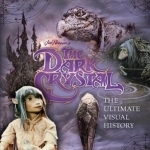
The Dark Crystal the Ultimate Visual History
Book
Dark Crystal: The Ultimate Visual History is the definitive collection of rare artwork, interviews,...

